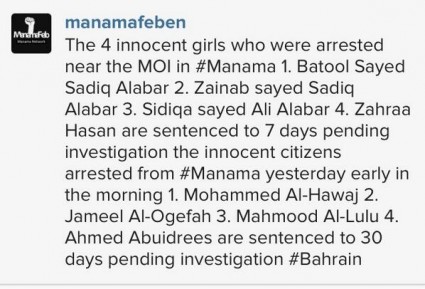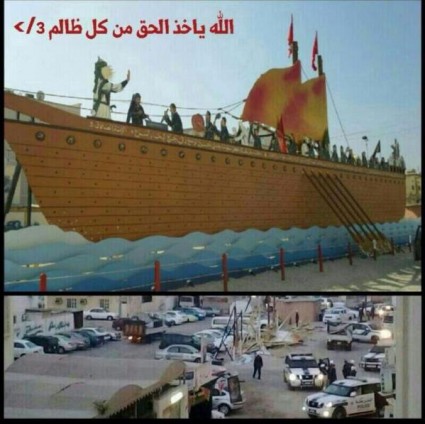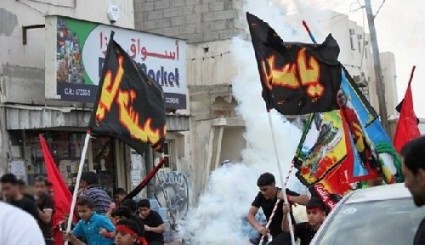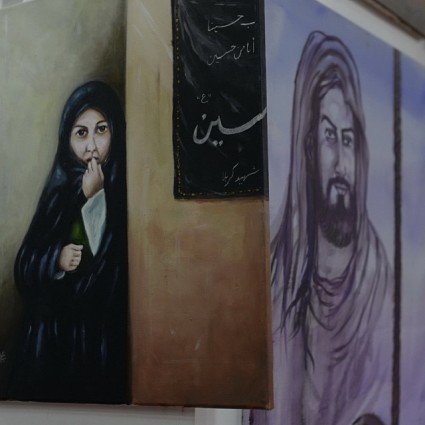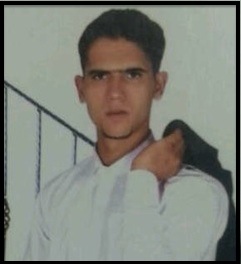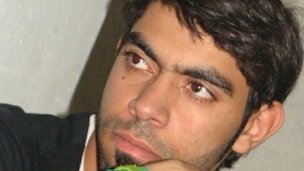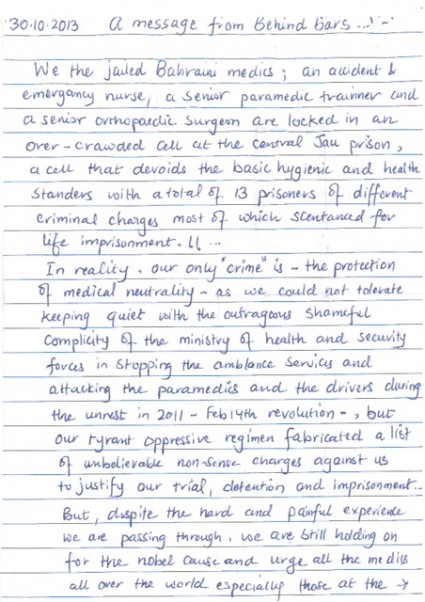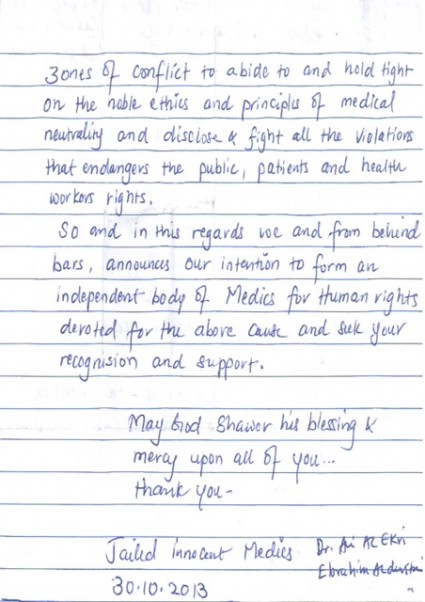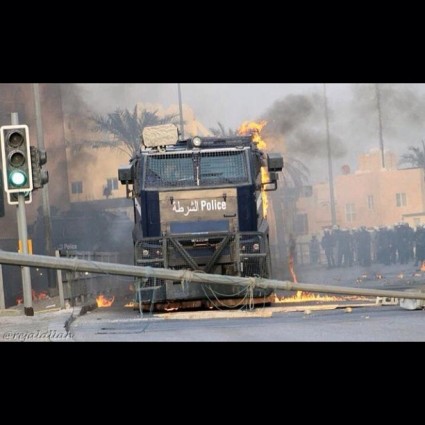Anonymous Message to Leaders of Russia Operation Green Rights
November 18, 2013 Add Comments
The Olive Tree is the foundation of the home and target of Zionist Settlers
 Palestinian Farmer looks at Olive Tree Destroyed by Zionists in Hate Crime
Palestinian Farmer looks at Olive Tree Destroyed by Zionists in Hate Crime
‘The olive tree is the foundation of the home’
By Matthew Vickery – 6 November, 2013
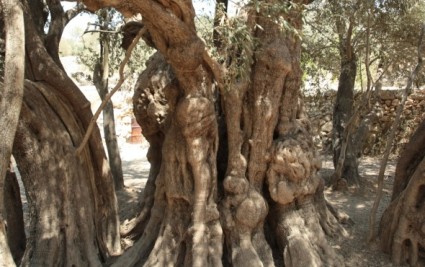
The trunk of the Al-Badawi tree, claimed to be the oldest olive tree in the world.
‘The olive tree is the foundation of the home’, I was first told this phrase by a farmer in Al-Walaja village in the West Bank two years ago, while we attempted to make our way towards the village’s fields and olive trees. They had been stolen by the Israeli government to make way for a nearby illegal Israeli settlement. Israeli Defence Force (IDF) soldiers predictably stopped us and pushed us back, preventing us from going any further. During this year’s olive harvest, this scene is being repeated time and again in the occupied Palestinian territories, often with dangerous aggression from IDF soldiers and Israeli settlers, or through the settlers directly destroying the trees.
The olive tree is the symbol of Palestine, of sumud (steadfastness): the ability to hold on and stand your ground against all odds. Indeed, olive trees have the potential to live for thousands of years and it is Al-Walaja where arguably the oldest olive tree in the world resides. Named Al-Badawi (The Old One), it has been dated to an age of between 4,000-5,000 years.
The olive trees that dot the West Bank have provided an income to Palestinians, generation after generation, and as such, they are valued members of the family.
It is during olive harvest that this phrase always comes back to me, kick-starting my thoughts about the olive trees’ relationship with the foundations of the Palestinian home and family life, often both built on the steadfastness of the olive tree. The olives that are sold from the tree, which survives harsh winters and dry summers, provide when economic times are tough, when other income channels have failed. It is a tree, a simple and, by itself, rather straight-forward tree, yet the relationship between it and the families living in the West Bank is special.
Yet my optimism is always cut short – as happens frequently when I think about issues regarding Palestine. My mind may wander among the trees for a few minutes while passing the olive groves on shared services (shared taxis) in the West Bank, yet suddenly the olive trees stop and the stumps begin. Trees cut down because of the separation wall, a part-wall, part-fence structure created by the Israeli government citing ‘security’ reasons; yet hundreds of thousands of Palestinians remain on the ‘Israeli’ side.
In many cases, trees that were uprooted could have been given back to Palestinian families and replanted, but companies involved with the Wall project and financed by the Israeli government instead decided to sell a huge quantity of them.
Olive trees unfortunate enough to grow near illegal Israeli settlements or the Wall continue to be routinely uprooted by the army. It is not unusual for Israeli settlers to burn the olive trees near their settlements that have survived the gaze of the military; anyone who has watched the Oscar-nominated Five Broken Cameras may well be aware of this.
It may be just a tree, but the olive tree is a metaphor for Palestinian resistance, for their steadfastness and their generosity despite their situation (a situation which neither the UN nor the ‘international community’ seems to have the will to truly and fairly resolve). But just like the olive trees in the West Bank, Palestinians are rooted to this small part of the world, and often only to their own small districts; they are subject to the axe of an aggressive military, one that reduces trees to stumps, and people to ashes.
…source
November 13, 2013 Add Comments
The Assault on Medical Neutrality and the Use of Weaponized Tear Gas in Bahrain
Medical Neutrality and the Use of Weaponized Tear Gas in Bahrain
September, 2013 – Physicians for Human Rights
Protecting Patients and Physicians From Attack in Bahrain
The Bahraini government’s response to the early 2011 pro-democracy protests was brutal, systematic, and violent. In addition to birdshot and rubber bullets, government law enforcement attacked unarmed protestors with toxic chemical agents including tear gas. The government’s crackdown on the medical profession was especially harmful, as security forces arrested and detained doctors, raided
health facilities, and obstructed patients from receiving necessary care. Physicians for Human Rights (PHR) calls for all perpetrators of abuse to be held accountable.
During the pro-democracy uprisings that began in early 2011, health workers on the frontline had first-hand knowledge of government attacks on peaceful protesters. As a result of their efforts to provide unbiased care for wounded protesters, the government initiated systematic and targeted attacks against medical personnel.
In April 2011, PHR launched an investigation in Bahrain after government authorities began to systematically target, abduct, detain, and torture physicians and station military forces in health facilities.
PHR’s report, Do No Harm: A Call for Bahrain to End Systematic Attacks on Doctors and Patients, was instrumental in compelling the U.S. government to include Bahrain in a list of major human rights violators in a formal submission to the UN Human Rights Council.
In addition to egregious violations to the principle of medical neutrality, the Bahraini government police forces have used enormous amounts of weaponized chemical agents, including tear gas, on protestors and other civilians. PHR’s 2012 report, Weaponizing Tear Gas: Bahrain’s Unprecedented Use of Toxic Chemical Agents Against Civilians, chronicles health effects and human rights violations associated with the inappropriate and excessive use of weaponized chemical agents. In this report, PHR found that Bahrain’s misuse of toxic chemical weapons was endangering the health of civilians and causing long-term pain and suffering. …more
November 13, 2013 Add Comments
Bahrain Regime Tramples Religious Rights During Ashoura
Bahrain: Authorities Promoting Sectarian Tensions by Targeting Shia Muslims During Ashoura
10 November, 2013 – Bahrain Center for Human Rights
The Bahrain Center for Human Rights and the Bahrain Youth Society for Human Rights express grave concern in regards to the targeted attacks on Shia Muslims in Bahrain by security forces during the religious period of Ashoura.
Since the beginning of the Islamic month of Muharram, security forces have led provocative attacks on several Shia Muslim neighborhoods in Bahrain. Pictures and videos show them taking down religious flags and banners that were placed earlier on homes and religious centers as part of the annual season for Shia Muslims commemorating the “martyrdom of Imam Hussain”, the grandson of the Prophet Mohammed.
On 4 Nov 2013, riot police attacked a group of people participating in a religious procession in Maameer, which have taken place in Bahrain for decades. The riot police used excessive tear gas against dozens of people that included elderly citizens and children. People of all ages participate in these processions given that they do not expect to be attacked as they are not political protests.
Furthermore, several citizens received police summons without a name specified on the summon, stating only “for the house’s owner”, due to placing Ashoura flags or banners on their own homes.
Additionally, the Government of Bahrain blocked a website which does live broadcasts of the religious events of Ashoura from over 30 areas in Bahrain HERE
The BCHR and BYSHR regard the above mentioned targeting and attacks as violations of freedom of religion, freedom of expression, and a practice of discrimination against Shia’s with the intent to further cause a sectarian split in the society and push towards to sectarian violence.
These practices are not new and the BCHR had documented similar attacks in the past (Nov 2012 report HERE ), however due to the culture of impunity, and the policy of discrimination, the harassment against Shia Muslims continues through judicial means.
The BCHR and BYSHR respectfully reminds the Government of Bahrain of Article 18 of the Universal Declaration for Human Rights: “Everyone has the right to freedom of thought, conscience and religion”.
Maryam Al-Khawaja, the Acting President of the Bahrain Center for Human Rights, said: “All sects and religions must be respected in Bahrain; that includes religious events. The Government of Bahrain is trying to purposely instigate a violent response from Shia Muslims by targeting them during an important religious period; and we have previously warned of the consequences of pushing people towards sectarian animosity. Allies of the Government of Bahrain must apply pressure for the immediate halting of sectarian based targeting; and promote respect for all religions and sects equally.”
The Bahrain Center for Human Rights calls on the United States, the United Kingdom, the United Nations and other allies and international institutions to pressure the Bahraini authorities to:
1. Immediately end the systematic attacks on religious liberties.
2. Immediately stop all forms of sectarian attacks and/or promotion of sectarian tensions/violence.
3. Immediately investigate and hold accountable those who gave orders, overlooked and/or carried out attacks on religious liberties.
4. Guarantee freedom of religion to all religions and sects in Bahrain.
November 13, 2013 Add Comments
Shameful Day in UN History – Violator, Terror State, Saudi Arabia Elected to UN Human Rights Council
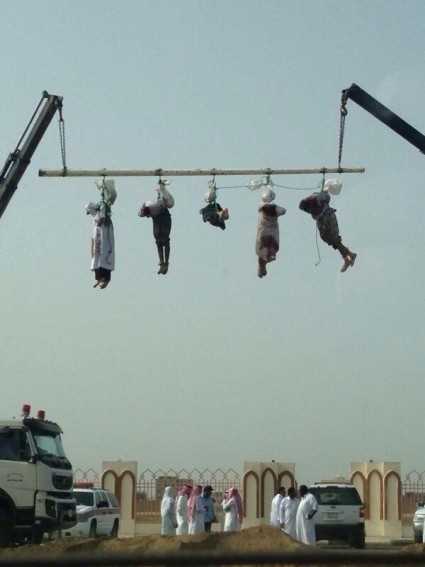
Saudi Arabia Be-headings for Crimes Ranging from Apostasy to Sorcery
Saudi Arabia is said to be the world’s largest source of funds for Salafi jihadist terrorist militant groups, such as al-Qaeda, the Afghan Taliban, and Lashkar-e-Taiba in South Asia, and donors in Saudi Arabia constitute the most significant source of funding to Sunni terrorist groups worldwide, according to US Secretary Clinton. According to a secret December 2009 paper signed by the US Secretary of State, “Saudi Arabia remains a critical financial support base for al-Qaida, the Taliban, LeT and other terrorist groups.”
Kingdom of Saudi Arabia wins seat on UN rights body
By GHAZANFAR ALI KHAN – 12 Novemebr, 2013 – Arab News
Saudi Arabia was elected Tuesday to the Human Rights Council, the UN’s highest rights watchdog body, for a three-year term following a secret ballot voting at the UN General Assembly in New York.
“The Kingdom, which garnered 140 votes, will begin its term in January,” said Rolando Jomez, a spokesman of the UN Human Rights Council, while speaking to Arab News, from New York.
Senior Saudi officials, especially those associated with human rights organizations, expressed joy over the news. Saleh Al-Kathlan, deputy chief of the Riyadh-based National Society of Human Rights, said: “The vote was expected in the light of the progress made by Riyadh in the field of human rights since it was first elected to that UN body in 2009.”
Dr. Ibrahim Al-Quaiyid, a member of the NSHR, said: “We are happy over the Kingdom’s election to the 47-member body whose role is to promote universal respect for human rights and fundamental freedoms.”
Al-Quaiyid added: “Saudi Arabia … has taken several initiatives to promote and protect human rights … this will give a chance to the Kingdom to play a global role in the domain of human rights promotion. Definitely, the country has had some grey areas as evident from our own reports, but Riyadh has addressed and will further redress all concerns.”
He said the commitment of the Saudi leadership and a set of stringent legislations to ensure protection to the life and property of its citizens and residents are major steps in this field, while referring to the creation of high-powered human rights organizations besides political and civil rights associations in Saudi Arabia during the past few years. …source
November 13, 2013 Add Comments
Two Bahrain Policemen await affirmation of their impunity by Bahrain Courts of Injustice
Two policemen face trial for maltreatment of detainees
10 November, 2013 – 24×7 News
Public Prosecution
Two policemen allegedly involved in three cases of maltreatment will appear before the court on November 25, 2013 to face charges, Chief Prosecutor and head of the Special Investigation Unit (SIU) Nawaf Abdullah Hamza in a statement confirmed.
The Public Prosecution charged the first defendant with aggressing two detainees and demanded his trial under articles 4/75 and 1 and 2 /339 of the penal code.
It also charged the second defendant with assaulting one of the accused as he was arrested and demanded his trial under the provisions of the same articles.
The probe panel has also interrogated seven people accused of maltreatment.
Witnesses were heard into the complaints which were lodged in October, which triggered an official inquiry.
In another development, Al-Wefaq Society Liberties and Human Rights Chief Hadi Al-Mousawi appeared before the probe panel regarding the torture and maltreatment claims and alleged statistics he had posted online.
However, he failed to produce evidence corroborating his cyber allegations, claiming the complainants themselves retracted and refused to report the cases.
The investigation unit also summoned Yusuf Al-Mahafdha regarding his torture and maltreatment claims and alleged statistics, which he posted on social websites.
However, the claimant failed to appear before the probe panel to hear his allegations, although notified officially three times.
A (SIU) reported to the Dry Dock detention centre last Wednesday (November6) to hear a number of detainees and gauge their conditions in police custody.
These include Hussain Jaafar Ibrahim Hubail, who was remanded in custody by court order for his involvement in a criminal case.
The detainee, who is under treatment, admitted receiving medication regularly, reporting some delay at times.
The prison authorities were ordered to administer him the necessary medication on time and cautioned against any delay.
The Chief Prosecutor and head of the Special Investigation Unit (SIU) said that the measures undertaken in this regard would be followed up closely. …source
November 13, 2013 Add Comments
Bahrain MOI, Please DO NOT let your Criminal Police Force, Rape or Injure these Girls
November 13, 2013 Add Comments
Bahrain Police Destroy Religous Displays Attack Processions During Muharram
November 13, 2013 Add Comments
Manama, Marking the 8th Day of Muharram
November 12, 2013 Add Comments
Urgent: Protection for Ali Abdul Al-Taweel, from Death by Bahrain Courts of Injustice
Ali AlTaweel Under Threat of Death by Bahrain Court of Injustice based on Coerced Confession
Call for Contact US Congress or UK MPs, Ask for Protection for Ali AlTaweel from Death Sentence
US Congress on Twitter: HERE
Email, Write =, FAX, US Congress HERE
UK MPs on Twitter: HERE
Contact UK MPs HERE
Bahrain: Court Upholds Death Sentence Based on Coerced Confessions
10 February, 2013 – Bahrain Center for Human Rights
The Bahrain Center for Human Rights expresses concern over the appeal court’s decision on 23 Jan 2013 to uphold the death sentence of
Ali Yousef Abdul Wahab Al-Taweel (23 years old) who has been detained since April 2011, for the alleged crime of running over a policeman on 15 Mar 2011. The death sentence was initially ordered by a military court in Sep 2011.
Arrest, Detention and Torture
Ali AlTaweel was subjected to several human rights violations from the first moment of his arrest. On April 19th, 2011, he was staying at his sister’s house when it was attacked in an early morning raid. He was arrested by masked men in military and civilian clothing, and his hands were tied behind his back with a belt. When he asked why he is being arrested, the officer informed him that he would know after being beating and hung in the air. He was dragged and beaten in front of the neighbours. The officers covered his face with his clothes and hit him harshly and continuously during the ride in the car – he was struck repeatedly on his face, abdomen, back and pelvic area. In addition to the physical abuse, he was also verbally insulted.
At the first location where AlTaweel was detained, the Isa Town police station, Ali AlTaweel was reportedly subjected to torture for a continuous 13 hours where, during which time he was forced to confess to running over a policeman. AlTaweel came to know that he was selected for this accusation because another detainee gave his name saying that AlTaweel had a car with a smashed window. He was beaten with a hose on his feet, back and all over his body. He was deprived from sleeping, drinking water, eating food, going to toilet, and praying.
AlTaweel was then moved to the Criminal Investigation Department in Adliya where he was subjected to more torture. AlTaweel says that the official who gave the orders to torture him was Colonel Mubarak Bin Huwail – a person whose name was also mentioned by other torture victims, including tortured doctors. Bin Huwail is currently on trial for torturing medical professionals. See: www.muscatdaily.com/Archive/Opinion/We-were-blindfolded-handcuffed-and-tortured-Bahraini-medics
AlTaweel says that Bin Huwail tried to force him to confess to running over the policeman, and to say that he was incited by Shaikh Mohamed Habeeb AlMoqdad. He was beaten all over his body including on his genital area where he had a prior surgery. When he informed them of his previous surgery they increased beaten on that area. Under these conditions, AlTaweel gave many names as “inciters” including Ali AlShamlool who was later selected by the interrogators to be charged for inciting the crime. AlTaweel required a surgery for the damage he suffered due to beaten on his genital area. During his appeal trial in 2012 he attended the sessions in a wheel chair following this surgery.
AlTaweel was forced to sign confessions without being able to read them; AlTaweel stopped attending school in the 4th grade, and is therefore unable to read. He believes that his signature was forged on other statements by officers taking advantage of his illiteracy.
The military prosecutor never interrogated the two defendants. Their signatures were taken on pre-made statements.
AlTaweel was then taken to the military prison (AlQurain) where beatings and insults continued, especially when the guards knew about his accusation, he was beaten on his head and back, and the ill-treatment continued until mid-June when the Bahraini commission of Inquiry (BICI) visited the prison.
Military Trial
According to his lawyer, AlTaweel was not allowed access to a lawyer during the first three hearings at the military court. He was also not allowed any family visits before his third hearing session. On 29 Sep 2011, the military court issued its verdict against Ali AlTaweel, and sentenced him to death. The second defendant, Ali Atteyat Allah Mahdi Shamlool, was sentenced to life imprisonment. AlTaweel was accused with “running over police officer Ahmed Ahmed Al-Muraisi on 15 Mar 2011 in Sitra”, while AlShamlool was accused with instigating the crime.
Solitary Confinement
Since AlTaweel was moved to the Jaw prison after receiving the death sentence on 29 Sep 2011, he was placed in solitary confinement. He only leaves his cell during bi-weekly family visits. His lawyer fears that AlTaweel’s mental condition has been severely affected by the extended amount of time he has spent in solitary confinement, and believes that his sanity may be in danger. …more
November 12, 2013 Add Comments
22 yo, Mohammed Mirza, shot, beaten, tortured – Bahrain Prison withholds medical treatment 3 months
Mohammed Mirza from Bahrain – Al-Dair is targeted by his condition deterioration.
10 November, 2013
With great concern and lack of a ploy we are watching the deterioration of our son’s health condition Mohammed Mirza Rabia a 22 year old from AlDair . After a full year suffering from a pre-trial detention on pending issues that had not have any real condemn evidence. However, when a case ends with a realease, he is once again covicted with a new one and he is now convicted for more than 14 cases and all of this is because of him being targeted by some of the officers in Samaheej police station specially an officer called Nawaf Alhashel and Yusuf Mulla Bakhit. Mohammed was transfered to Jao prison 3 months ago. Because of Mohammed Mirza’s arrest circumstances on June 27, 2012 after several raids by an ambush prepared for him right next to his house and he was beated on all over his body and insulted psychologically, physically and sexualy in order to take baseless confessions out from him, and after a stiff resistance to all kinds of beatings, torture and cruel treatment , inhumane beatings resulted that :
1 – Our son Mohammed Mirza is now very weak in the senses of hearing and sight due to spraying hot material in his eyes, the continued beating on the eye and blinding him for more than 5 days after the arrest also beating him on the ear. His sight and hear senses are getting worse, he needs to be seen by a specialist and all what we have got from all of our continued speeches is to examine the situation only, without treatment! and when we asked for the report from Samaheej police station they refused to give us a copy of it! Despite being examined by a doctor in King Hamad university Hospital and The Castle Hospital and both were recomended to be transfered to AlSalmaniya Medical Complex but until this day after nearly a year and a half of being prisoned he had not been transfered there and he did not have any ENT or eye appointments in Alsalmaniya medical complex. He also, was not examined by any consultant or specialist in eyes diseases and his sight sense is getting worse due to the lack of coordination between the Ministry of interior represented by Samaheej police station, Jou prison and King Hamad University Hospital and Salmaniya Medical Complex! Is this deliberate neglect and porpused for our son, in particular, to increase his pain and immortal youth day after day, or is it that all detainees patients suffering horrors!
2 – Mohammed Mirza suffers from severe back pain due to erosion of the paragraphs of his spine due to the shotgun friction with the spine paragraphs because of torture. Finally after a year and a half Mohammed was examined by a specialist in Salmaniya Medical Complex and he was recommended for a medical belt that is worn permanently 24-hour in order not to get worse and a request for MRI Scan to be sure. and that was two months ago, and until today he has not been taken for physiotherapy they also rejected giving him the belt under the pretext of containing the components iron and this is forbidden by the policy of Jau prison and the doctor asked to remove the iron parts or give him a replaceable belt as for his urgent needs to it despite the inefficiency effect without the iron parts, but the Police refused to recieve it and until today he is not treated in any way that recommended by the doctor and he is feared to be paralyzed or disable and the deterioration of his health. Mohammed Mirza was arrested for multiple pending issues for nearly a year, and many release and treatment requests asked by his lawyer did not work and every time he is released a series of issues saved against unknown are issued against him one after the other. after the challenge and the threat of officers from Samaheej police station without deterring and accountability of officials we had conveyed his suffering to the Minister of Justice and the General Attorney in more than one letter of request in setting an impartial investigation judge into what was attributed to him and they did not respond not to investigating with the responsibility or giving treatment, and, unfortunately, they ratified the officers’s threats and us his family that he would not be allowed to be outside the prison. our son Mohammed Mirza spent nearly a year in custody and one year from his age disappeared and he was sentenced in one case only for one year and instead od clearing and calculating the period he spent in prison their decision was that the period during which the detainee spent in prison will not be counted he will stay another year in prison and the heart of his mother is pulsing blood on his youth, which is deteriorate in front of her eyes. The fate of our son is hanging and he walks to nowhere without taking any action to deter officials and without taking humanity and his constitutional right to treatment course.
We are asking for a response from the officials in the Ministry of Interior and Health, each according to his humanity and moral responsibility for these important questions:
1. When will you provide adequate treatment for our son while he is in prison.?
2. Who is accountable for holding those responsible for torturing and accusing our son? They must be brought to justice because of their misuse of power in putting innocent people in prison.
Detainee Mohammed Mirza family: 36722210 – 36868151
بتاريخ Nov 10, 2013 10:19 PM، جاء من “Lawyer Mohamed Altajer”
ترجمة الله يخليك ضروري
LAWYER MOHAMED ALTAJER
Secretary General of the Bahrain Coalition for Human Rights Observatory
SEE BBC Story from August HERE
[Read more →]
November 12, 2013 Add Comments
Deals and Rumors of Deals intended to unsettle course of Bahrain’s Revolution
Alliance of Youth of Change Boycott 2014 Parliamentary Election
By Jaafar Almusaad – November 10, 2013
Recent developments surrounding the on-going popular anti-regime uprising in Bahrain revealed intention of the ruling dynasty and the so called “moderate” opposition to engage soon in a political settlement.
A consensus has been reached by the United States and Iran, where the latter is to employ its religious, media and financial influence to push the settlement forward. Officials in the Islamic Republic of Iran have been calling for “political solution” and “dialogue” to end the “crisis” in Syria and Bahrain.
The United States Administration has recently managed to cajole the House of Saud to consent to the settlement, according to analysts.
The popular uprising in Bahrain has not won support from the West, and is wrongfully – perhaps purposefully – perceived as “sectarian strife” between the majority Shia and the ruling Al-Khalifa dynasty, which happens to be Sunni.
The ruling dynasty in Bahrain has deployed its army, enforced martial law in 2011 and is continuing to adopt lethal tactics to face peaceful protests. At least 140 civilians have been killed by regime forces since February 14 2011, including women and children.
The proposed settlement is at odds with the right of Bahrainis to self-determination.
Alliance of Youth of Change believes that dictatorships can only buy legitimacy from (obeying) opposition, not from loyalties. Therefore, we have decided to boycott the upcoming parliamentary election, which is scheduled to take place in 2014.
We consider participation in this election as an act of betrayal and disrespect to the souls of the martyrs, who have sacrificed their lives to bring an end to the illegitimate rule of the Al-Khalifa dynasty.
We uphold that the only way forward in Bahrain is for the Al-Khalifa regime to step down. …source
November 11, 2013 Add Comments
Letters from Jau Prison: Dr Ali Al Ekri, Pediatrician and Mr Ebrahim Al Demistani, Senior Nurse
This is a message from Dr Ali Al Ekri, consultant pediatrician and Mr Ebrahim Al Demistani, Senior Nurse in Jau Prison. They were jailed on 1st October 2012.
Ali was jailed for five years and has done 18 months. He was spokesman for the doctors and also went to Gaza in 2007 to treat children after Israel’s attack.
Ebrahim was jailed for three years because he tended a man who came injured to his door. Their initial sentences of 15 years and 10 years were reduced due to international pressure.
The international community must put on pressure to get the medics released. Hassan Matooq, an emergency nurse, was jailed for three years for “fabricating reality in his photos of the injured.”
and Haleema Al Sabagh, a dental assistant, was jailed for one year, for taking first aid materials to the injured. All the medics have been tortured and are now in overcrowded cells with no access to medical treatment.
In February 2013, eight of the jailed medics lost their licenses to work. This was a further attack on those who treated the injured and witnessed the atrocities.
”The Bahrain regime defined the word revenge uniquely. For witnessing the crimes of the regime, their careers will be ended.” Dr Nadia Dhaif, Chairwoman, BRAVO.
November 11, 2013 Add Comments
Saudi Arabia ‘hell bent’ on making same mistakes in Syria that Saddam made Kuwait
According to Foreign Policy, Saudi Arabia preparing attack on Syria
Voltaire Network – 10 November 2013
According to Foreign Policy magazine, Saudi Arabia is lining up an army of about 50 000 men, in Jordan, with the help of Pakistani instructors.
This information is not new, since the plan has been known to our readers for quite some time. However, the initial strategy had envisaged an attack for last August by a column of armoured tanks, supported by the US army. The Saudi Vice-Minister of Defence installed himself in Amman to oversee the formation of this army and ensure the transfer of the tanks from Saudi Arabia. A meeting was held in Amman from 25 to 27 August 2013, chaired by CentCom Commander General Lloyd J. Austin III, to prepare for the operation. For communication purposes, the crew on the first armoured tanks was to be made up of Syrians recruited from refugee camps, while mercenaries would compose the major part of the troops.
The news is that the article in Foreign Policy came out after John Kerry’s trip to Riyadh to restore good relations between the two countries. It the report is confirmed, it would prove that Saudi Arabia is going ahead with this plan even though U.S. military forces have backed out of Syria.
November 11, 2013 Add Comments
Secretary Kerry meets with Saudis, to repair damages from Petulant Prince misbehaving…
Kerry reassures Saudis, says U.S. will step up its consultations with the kingdom
By Karen DeYoung – 4 November, 2013
RIYADH, Saudi Arabia — Secretary of State John F. Kerry made what amounted to an emergency fence-mending trip to Saudi Arabia on Monday, reassuring King Abdullah in a rare and lengthy meeting that the United States considers the kingdom a major partner and regional power and that the Obama administration will step up its consultation on issues important to both nations.
During his two-hour meeting with the king, and in separate sessions with Foreign Minister Saud al-Faisal, Kerry sought to explain President Obama’s decision to limit direct U.S. military involvement in Syria and repeated assurances he made Sunday in Cairo that the United States remains committed to strong support of Egypt.
A three-month-old Sumatran tiger cub named ‘Bandar’ shows his displeasure after being dunked in the tiger exhibit moat for a swim reliability test at the National Zoo in Washington, Wednesday, Nov. 6, 2013. All cubs born at the zoo must take a swim test before being allowed to roam in the exhibit. Bandar passed his test. (AP Photo/Manuel Balce Ceneta)
Iranian team must consult with leaders back home to see what they can accept, Secretary Kerry says.
He also denied widespread speculation here that Obama is willing to accept a less-than-ironclad nuclear deal with Iran during the current round of negotiations. “The United States will not allow Iran to acquire a nuclear weapon,” Kerry said in an airport news conference with the foreign minister before departing.
“Did I give some assurances? Yes, absolutely. Of course I did,” he added.
Without acknowledging any lack of consultations, Kerry said he had made clear that “we will very much brief our friends here on a regular basis so that there are no surprises and there is a clarity to the road ahead. And I hope that . . . is a welcome process.”
Concerns among regional partners over Obama’s Middle East policies are not new. Saudi worries that Obama’s eagerness for a deal with Tehran will lead to compromise — despite the president’s frequent insistence that he will settle for no less than a non-nuclear Iran — are shared by Israel and others.
Nor were the Saudis alone in the region in their disappointment over U.S. reluctance to become more directly involved in the Syrian conflict, as well as Obama’s abrupt decision at the end of August to put on hold a planned military strike against Syria’s chemical weapons program while he consulted with Congress. …more
November 11, 2013 Add Comments
Putin meets Saudi King to discuss Petulant Prince, Proper Order of Conduct in International Affairs
Putin, Saudi king discuss Syria conflict, Iran nuclear drive
10 November, 2013 – Agence France Presse
MOSCOW: Russian President Vladimir Putin called Saudi King Abdullah on Sunday to discuss international efforts to end the Syria crisis and halt Iran’s disputed nuclear drive, the Kremlin said.
The Kremlin said the two leaders “expressed a mutual interest in furthering (their) cooperation and maintaining contacts at various levels” aimed at helping resolve world disputes.
Russia and Saudi Arabia have had strained relations over Moscow’s support for Syrian President Bashar al-Assad and decision to complete the construction of Iran’s first nuclear power plant.
Riyadh firmly supports Assad’s ouster and fears that Iran’s nuclear programme is masking an effort to develop an atomic bomb.
Russia last month sharply criticised Saudi Arabia’s decision to reject membership of the UN Security Council over the body’s failure to resolve the Syrian war, which has been fought for over two-and-a-half years.
The most significant recent contact between Moscow and Riyadh was a meeting between Putin and Saudi Arabia’s influential intelligence chief Prince Bandar bin Sultan in Moscow on July 31.
Diplomats in the Middle East have said that Putin then rejected a proposal from Prince Bandar for Moscow to abandon its support for Assad in exchange for an arms order from Riyadh worth $15 billion (11 billion euros).
The Kremlin later denied that the two men had discussed military cooperation or any deals.
…source
November 11, 2013 Add Comments
Secretary Kerry, “just because the Russians and Iranians make me look stupid doesn’t mean I am…”
Kerry: United States not ‘blind’ or ‘stupid’ in Iran talks
10 November, 2013 – Reuters
WASHINGTON: U.S. Secretary of State John Kerry said on Sunday that the United States continues to be skeptical of Iran’s willingness to dismantle its nuclear program and will keep sanctions in place as talks continue.
“We are not blind, and I don’t think we’re stupid. I think we have a pretty strong sense of how to measure whether or not we are acting in the interests of our country and of the globe,” Kerry said on NBC’s “Meet the Press.”
The United States and its allies narrowed their differences with Tehran in talks over the weekend, but were not able to reach a deal as France believed the proposal did not adequately neutralize the risk of an Iranian atom bomb.
Israel has also voiced skepticism, warning that the Iran cannot be trusted until it dismantles its nuclear program.
Kerry said the United States is aiming to get Tehran to halt further nuclear development as a first step toward a complete dismantling of the program. Washington will keep sanctions in place in the meantime, he said.
“Nobody has talked about getting rid of the current architecture of sanctions. The pressure will remain,” he said.
…source
November 11, 2013 Add Comments
US Counts the Cost – Rouhani: Sanctions against Iran More Harmful to West
President Rouhani: Sanctions against Iran More Harmful to West
10 November, 2013 – FARS
TEHRAN (FNA)- Iranian President Hassan Rouhani dismissed media claims that Tehran has sat to the negotiating table due to the pressures exerted on the country by the western sanctions, saying that the embargos harmed their advocates more than the Iranian nation.
“The sanctions not only harm the Iranian nation but also damage their imposers,” Rouhani said, addressing the parliament in Tehran on Sunday.
Stressing that Iran believes the sanctions are illegal and inefficient, he said, “We have not sat to the negotiating table under the pressure of sanctions.”
“Iran sat to the negotiating table from 2001 to 2003 while there was no sanctions at that time,” he reminded.
Rouhani described the negotiations as beneficial to both sides, and said, “The region, the world and the negotiating sides with Iran will benefit from the negotiations and success in such negotiations means stability in the world and paving the way for interaction among Iran, the region and the world.”
Noting that those participating in the negotiations have reached this conclusion that sanctions do not present the solution, he said, “We will continue this way and the least benefit of it, as said by Supreme Leader of the Islamic Revolution (Ayatollah Seyed Ali Khamenei), is that we don’t sustain a harm from it and I also add that the least benefit of these negotiations is that Iran’s role in the region and the world will be clear and the public opinion will believe that Iran is not stubborn and, as it has said, is not after the Weapons of Mass Destruction (WMDs).”
His remarks were uttered after Supreme Leader of the Islamic Revolution Ayatollah Seyed Ali Khamenei in similar remarks earlier this month voiced pessimism over the talks between Iran and the Group 5+1 (the US, Russia, France, Britain and China plus Germany), and said, “I am not optimistic about the current negotiations because it is not clear if they will yield the results that the (Iranian) nation expects; yet, we believe that there is no problem with (doing) this experience provided that the nation will be vigilant and be aware of what is happening.”
He also advised the Iranian officials participating in the talks with the world powers to keep vigilant, and said, “On one hand, they (the western powers) smile and voice interest in negotiation and on the other hand, they immediately say that all options are on the table. Now it is not clear what a damn thing they could do.”
Iran and the world powers ended a fresh round of talks in Geneva early Sunday morning and they agree to meet again in the same city on November 20. …source
November 11, 2013 Add Comments
White House offers to suspend its sanctions against Iran
White House offers to suspend its sanctions against Iran
Voltaire Network – 10 November, 2013
The White House offered Iran a six months suspension of some of it’s sanctions, if Tehran suspends some of it’s nuclear activities during that same period.
This ’’good will’’ gesture would allow to quickly reach a permanent agreement between the two countries, insisted the US negotiators.
For ten years, the United-States and their allies have been accusing Iran of developing a military nuclear program. Even though it is the country that has been most inspected by international organizations, the slightest evidence was never found to support this assertion. But since Hassan Rohani’s election, Washington seems ready to abandon it’s accusations.
…source
November 11, 2013 Add Comments
Pentagon withdraws forces from Syria
Pentagon withdraws forces from Syria
Voltaire Network – 10 November, 2013
The Pentagon has announced the retreat of aircraft-carrier USS Nimitz and of guided-missile destroyer USS Graveley from the Eastern Mediteranean.
The only war vessels left in this region are one aircraft-carrier (USS Harry Truman), two destroyers (USS Stout and USS Ramage) and one cruiser (USS Monterey).
The United States are therefore reverting to the level of deploying they had before the Syrian chemical weapons crisis.
November 11, 2013 Add Comments
Iran picks the results of its resistance
Iran picks the results of its resistance
By Ghaleb Kandil -Voltaire.net – 10 November, 2013
Whatever the outcome of negotiations on the Iranian nuclear issue, the reality that emerges from the image of the Minister of Foreign Affairs of the great powers, who rushed to Geneva after information about an agreement -which could be followed by other rounds of talks-, is that 34 years of blockade and war ended in a dismal failure for the West. The strength of leadership and the Iranian people and their determination to move forward failed all the plots.
The timing of the U.S. decision to recognize the strength and power of Iran coincided with the renouncement by the United States to project their aggression against Syria. The determination and the strength of the resistance axis and its allies opposing American unilateralism succeeded in blocking American war plan. Syria, Iran and Hezbollah have strongly expressed their willingness to face any attack, because they are aware that an aggression against any member of this alliance is actually aiming at dismantling the entire axis.
Thanks to the commitment of the Iranian people to their independence and freedom, to the determination and skill of its leadership, Iran has managed to overcome the imperialist blockade imposed on it for more than three decades. And that ’s not all. Tehran managed to acquire and accumulate enormous economic, technical, scientific and military capabilities, allowing it to make its entry into the club of great powers. American recognition of the Iranian force crown these achievements against the imperialist and Zionist conspiracies, funded by Saudi Arabia and other Gulf countries. These developments have taken place due to the choice of resistance, established by the alliance between the Raba Syrian State and the Islamic Iran, whose foundation was laid during the historic meeting between the two great figures now deceased, President Hafez al-Assad and Ayatollah Khomeini. It would be appropriate to compare the U.S. recognition of the Iranian force to the recognition by Washington of the Popular Republic of China, in the late 70s. And as is to recognize the role and power of China has paved the way for changes in East Asia, the recognition of Iran pave the way for significant changes in the Arab Mashreq and the Gulf.
Those affected and concerned by the submission of the United States to the new realities show their true faces in Riyadh and Tel Aviv. For decades, these have built their interests on offensive and aggressive actions of the United States against Iran. Actions for which huge financial, military and intelligence capabilities were deployed in order to counter the strategy of Tehran, that has made the Palestinian cause and support the resistance in Lebanon and in Syria, the cornerstone of its regional policy. These same principles are applied in Iran’s approach to the situation in Iraq and the crisis in Yemen and Bahrain.
The future relationship between Iran and the United States will be analyzed through the prism of a regional and global Cold War. It would be illusory to believe that the negotiations will result in immediate and comprehensive compromise on all contentious issues. It is clear that there are differences in priorities. Washington wants arrangements that precede the withdrawal of its troops from Afghanistan, while Palestine is in the heart of Iranian concerns. All previous stages of the confrontation showed the strength of the Iranian position in its support for Syria and its refusal to enter into bargaining at the expense of its constants. It is this strength that forced the United States and its allies to recognize tacitly their failure. Indices marking the decline of the West will begin to appear soon, especially as U.S. and European allies to send emissaries to Damascus.
The shape of the confrontation has changed but the foundation of the contradiction between a free and independent Iran and its allies on the one hand, the imperialist, Zionist and collaborators from other states alliance remains unchanged. This confrontation is now underpinned by new rules, which are in favor of Iran and its partners. …more
November 11, 2013 Add Comments
After Thaw, Conciliation, US and Iran must learn to be respecters of Regional Rights and Autonomy
Strangers in the night: What can we really expect from a US-Iran thaw?
10 November, 2013 – Hamid Dabashi – Al Jazeera
More than three decades, and a whole lot of bitter history, after the Iranian revolution of 1977-1979, high ranking Iranian and American officials are openly meeting and exchanging more than glances.
The 1979 Iranian revolution, the very raison d’être of the Islamic Republic, was launched with fierce anti-American slogans woven into its ideological foregrounding. The hostage crisis of 1979-1980 was the defining moment of the Iranian revolution whereby the militant Islamists out-manoeuvred all their domestic political rivals, and by appearing to fight a foreign enemy, silenced and eliminated them and established and consolidated an Islamic republic.
The Iran-Iraq War of 1980-1988 pitted the two Muslim nations against each other with the Reagan administration aiding and abetting Saddam Hussein to curtail any revolutionary appeal of Iran to its Arab neighbours, while the Iran-Contra Affair revealed that the US was arming Iran too. Ever since the launch and success of the revolution, the chanting of “Death to America” has been as definitive to Muslim Friday prayers in Iran, as the invocation of Allah-u Akbar.
Muslim revolutionaries leading the Islamic Republic, of course, did not sit still inside its borders. After the Israeli invasion of Lebanon in 1982, they began to actively spread the sphere of their militant influence into the immediate vicinity of Israel – the chief US military base in the region. The line of resistance – though now much weakened in the aftermath of the Arab revolutions – that eventually emerged among Iran, Syria, Hezbollah and Hamas has been a thorn in Israel’s side for decades. The catastrophic aftermath of the US-led invasions and occupations of Afghanistan and Iraq has created even more fertile grounds for the extended Iranian influences.
What has brought the Iranians and Americans together today is not just the fabricated question of “the nuclear issue” and the crippling economic sanctions that the US, the EU and the UN have imposed on Iran. The far more strategically significant issue is the unfolding Arab revolutions that have destabilised the region to the detriment of both the US and Iran. The two historic enemies have a common interest in micromanaging a very volatile region – and Iran and the US can offer each other help not available in the Saudi and Israeli (US-made) arsenals.
What has brought the US and Iran together is their shared interests in a vastly changing region. President Barack Obama is winding down and thinking of his proverbial place in history, while the Islamic Republic thinks itself eternal. There is fierce opposition to any rapprochement with the US in Iran as there is in the US. While Israel and Saudi Arabia lead the cause of anti-Iran in the US and around the world, their counterparts in Iran, the vested interests of the ruling regime for over three decades invested in anti-Americanism, do the same in Iran. But the force of history pushes forward.
The fact is that there is a clear air of hope and optimism about Iran and Iranians these days – they now sport a smiling president and even a handsome foreign minister whose wide grin and silvery goatee and fancy footwork on his Facebook page, has put a positive twist to Iranian politics.
What now?
Iran has put forward its most diplomatic and conciliatory face, and Obama is in no mood for another war on his watch. The region is in radical turmoil. Syria is bleeding, Egypt is going wayward, the Saudis see their immediate and long-term interests in the region radically modified. They have no clue on whom to place their bets, as Egypt’s deposed president Mohamed Morsi now faces trial in the country in which he was democratically elected. Yemen and Bahrain and Tunisia are unstable. From Morocco to Jordan monarchies wonder and wobble. Israel is the grand loser of this game, and does all in its power to grab more Palestinian lands and create more chaos and confusion, and delay the democratic fate of a region that spells out trouble for the apartheid state.
The Iran and US are poised to strike a deal (if not a “Grand Bargain”), and strike a deal they will. Sanctions will be eventually eased, Iran will happily reduce enrichment and increase transparency. It will lose nothing. With the current condition of nuclear knowledge and infrastructure, and within the NPT regulations and even additional protocols, Iran’s nuclear program can be weaponisable within a year, and there is very little (nothing in fact) that either Israel or the Saudis or the US can do to alter that historic fact. In addition, Iran can and will offer Obama substantial help in Iraq, in Afghanistan, in Syria and where ever else he is in trouble.
Years ago, at the commencement of the Green Movement in Iran, I suggested that the ruling elite in Tehran cornered a lucrative market for themselves so that if the US attacks them they will win, and if they sit down to negotiate with them they will win too. Their weakest spot is their domestic front – which they seem to be addressing – but so far the operative word is “seem”.
In these cautious steps towards détente between Iran and the US, we are witness to the decreasing power of the US to rule the world at whim, and the inability of the Islamic Republic to deny the democratic rights of an entire nation. Neither can the US rule the world at whim, nor can the regime in the Islamic Republic deny a vastly cultivated people their democratic demands. …more
November 11, 2013 Add Comments
Iran, world powers conclude talks in Geneva
Iran, world powers conclude talks in Geneva
10 November, 2013 – Shia Post
Iran and the five permanent members of the UN Security Council plus Germany have concluded three days of intense talks on Tehran’s nuclear energy program in Geneva, Switzerland.
The closed-door talks, which started on Thursday and were to end on Friday, continued into early Sunday amid divisions among the six world powers.
French Foreign Minister Laurent Fabius said the marathon ministerial talks ended without a deal.
“The meetings in Geneva have made it possible to move forward, but we have not yet managed to conclude [a deal], because there are still some questions remaining to be dealt with,” Fabius said.
In a final joint press conference with EU High Representative for Foreign Affairs Catherine Ashton, Iranian Foreign Minister Mohammad Javad Zarif said progress had been made during the “productive” talks and that the two sides had reached an agreement on a number of issues.
“I’m not disappointed at all because the meeting we just had, very long, running after midnight, was a good meeting,” Zarif said. “We are working together and hopefully we will be able to reach an agreement when we meet again.”
Ashton also said that the two sides had made “concrete progress” in the talks, which she described as “intense and constructive discussions.”
She, however, said some issues remained to be resolved in future talks. “Our objective is to reach a conclusion and that’s what we will come back to try and do,” she told reporters.
Ashton said Iran and the five permanent Security Council members plus Germany would meet again on November 20.
Meanwhile, Iran’s Deputy Foreign Minister for International and Legal Affairs Abbas Araqchi said that the Iranian negotiating team will hold talks with the world powers’ political directors to work out a draft agreement.
Araqchi, a senior member of the Iranian negotiating team, said the next step will be for the foreign ministers of Iran and the six powers to finalize a deal. …source
November 11, 2013 Add Comments
Four more sentenced in endless stream of those arrested in night raids and torture confessions
Bahrain jails four for car bomb outside mosque
10 November, 2013 – Reuters
(Reuters) – A Bahraini court sentenced two men to life in prison and two others to 15 years for a car bomb attack outside a mosque in July, state news agency BNA said on Sunday.
Bahrain, a Western ally which hosts the U.S. Fifth Fleet, has been in political turmoil since a 2011 uprising led by majority Shi’ites. They demand reforms and more share in running the kingdom, which is ruled by the Sunni Muslim al-Khalifa dynasty.
Several vehicles were destroyed but no one was hurt in the explosion outside a Sunni Muslim mosque in al-Riffa, south of the capital Manama, where some members of the royal family live.
Government officials said at the time the attack, which took place during evening prayers in the Muslim holy month of Ramadan, was an attempt to inflame sectarian tensions.
Among other charges, the defendants were convicted of setting up and joining an organization “that uses terrorism as a means to achieve its aims”, setting off an explosion to terrorize innocent people, stealing cars and training to make explosives, BNA said.
The authorities have quelled the revolt in the island kingdom, which sits between Sunni-ruled Saudi Arabia and Washington’s main regional antagonist, Shi’ite power Iran.
But protests and small-scale clashes continue, and bomb attacks have been increasing since mid-2012. At least one policeman was killed and five security officers were wounded by explosions and homemade bombs in recent months.
Bahraini Shi’ites complain of discrimination in areas such as jobs and public services – something the government denies. Talks between the government and opposition have failed to end the political crisis.
November 11, 2013 Add Comments
Saudi Arabia’s Petulant Prince Bandar, fans the flames of violence in Bahrain
Opposition Figure Blames Saudi Prince Bandar for Increased Tensions in Bahrain
9 November, 2013 – FARS
TEHRAN (FNA)- A prominent Bahraini opposition figure took Saudi Intelligence Chief Prince Bandar Bin Sultan responsible for the recent exacerbation of tensions between the Bahraini people and the ruling al-Khalifa government and the security forces’ harsher crackdown on the protestors.
“Informed sources have said that Prince Bandar is behind the increased tensions in Bahrain; tensions have intensified after Riyadh’s failure in the Syrian case and it failed in changing the power balance in Syria and after the al-Saud sustained much regional and international damage in this case,” a member of Tamarod (Rebellion) Movement and political analyst Ali al-Fayez told FNA on Saturday.
“The Al-Saud headed by Bandar Bin Sultan want to compensate for their failures in Syria and other regional issues in Bahrain,” he added.
Anti-government protesters have been holding peaceful demonstrations across Bahrain since mid-February 2011, calling for an end to the al-Khalifa dynasty. Violence against the defenseless people escalated after a Saudi-led conglomerate of police, security and military forces from the Persian Gulf Cooperation Council (PGCC) member states – Saudi Arabia, Kuwait, the United Arab Emirates, Oman and Qatar – were dispatched to the tiny Persian Gulf kingdom on March 2011, to help Manama crack down on peaceful protestors.
Al-Fayez underlined that despite all plots hatched by Riyadh and other allies of al-Khalifa regime, the opposition forces will not succumb to pressures and will continue their protests until the overthrow of al-Khalifa regime and empowerment of a popular and fair government.
In relevant remarks in August, a political analyst said that Prince Bandar is behind the unrests created in most of the countries in the Middle East.
“The Pressures by Prince Bandar for restoring the battlefield balance in the interest of terrorists in Syria and a political balance in Lebanon helped failure of talks between Washington and Damascus,” Syrian political analyst Akram Ali Al-Ahmad told.
“Saudi Arabia has taken charge of the leadership of the front against the resistance axis to proceed with the regional affairs according to the plans and programs the US and Saudi Arabia,” he added.
In July, the Syrian Dam Press news website reported that Prince Bandar Bin has been forming terrorist groups in Lebanon.
Bin Sultan has created several terrorist groups in cooperation with Lebanese politicians, including Head of the Lebanese Al-Mustaqbal party Saad al-Hariri and Samir Jaja, it reported.
Prince Bandar has sent a number of its mercenaries to Lebanon via Syria, Dam Press quoted informed sources as saying.
The sources noted that Bandar’s mercenaries have had special terrorist trainings in camps of the al-Nusra Front terrorist group and the so-called Free Syrian Army in Syria.
The sources also revealed that the Lebanese Resistance Movement Hezbollah is the main target of Prince Bandar’s terrorists.
Saad al-Hariri and Bandar Bin Sultan had a meeting in the Saudi city of Jeddah in October after a terrorist bomb blast in Beirut which led to the killing of the Lebanese Internal Security Forces Chief, General Wissam al-Hassan.
At the meeting, the two sides conferred on ways of intensifying tensions in Lebanon through terrorist operations by extremist groups who are supported by the al-Saud regime, Palestinian weekly al-Manar reported in October.
Prince Bandar coordinates terrorist operations and blasts in Lebanon with Israel and he occasionally makes secret visits to Tel Aviv, the weekly quoted informed sources as saying.
The Jeddah meeting presided by (Saad) al-Hariri was held with the aim of creating chaos in Lebanon, and supporting and expanding terrorism in Syria with the coordination and cooperation of their international and regional allies, the sources told Al-Manar.
In June, the Lebanese newspaper Assafir reported that Prince Bandar supervised the operations of providing the foreign-backed militants fighting the Syrian government, with German anti-aircraft missiles in Antakia.
Arab sources told Assafir that Prince Bandar Bin Sultan supervised supplying the militant groups in Syria in June with a batch of heavy weapons that includes mainly German anti-aircraft missiles in Antakia before the militants distributed the weapons over their different groups in Aleppo, Homs, Damascus, and Idleb.
The sources added that Bandar is seeking an arm deal with France to provide the Syrian militants with French anti-aircraft missiles, yet the French expressed their concerns about their strategic interests, and refused to be the sole provider of weapons for the militants, calling on to share these burdens. …source
November 11, 2013 Add Comments

